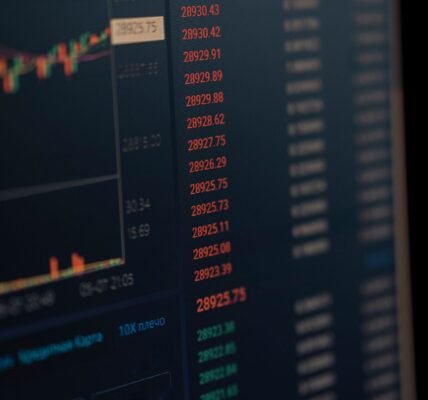Avenue Supermarts Limited (DMart), India’s leading retail chain, has become a textbook case of phenomenal success in the Indian stock market. From its stellar IPO debut in 2017 to its continued growth as a wealth generator for investors, DMart’s journey showcases the potential of well-managed businesses with strong fundamentals. Here is a detailed look at DMart’s stock market story:
Background of Avenue Supermarts
- Founded: 2002 by Radhakishan Damani, a renowned stock market investor and entrepreneur.
- Business Model: Operates a chain of hypermarkets with a focus on low pricing and high-volume sales. DMart primarily caters to middle-class families by offering groceries, home essentials, and clothing at competitive prices.
The IPO: Avenue Supermarts Enters the Stock Market
- Initial Public Offering (IPO):
- Date: March 2017
- IPO Price: ₹299 per share.
- The IPO was one of the most anticipated public issues, given the company’s strong financials and Radhakishan Damani’s reputation.
- Oversubscription:
- The IPO was oversubscribed by over 105 times, reflecting robust demand from institutional and retail investors.
- Listing Day:
- Listing Price: ₹604, more than double the IPO price, delivering a 114% gain to investors on the first trading day.
- Market Cap: ₹39,988 crore on debut, making DMart one of India’s largest retail companies.
Key Milestones in DMart’s Stock Market Journey
1. Phenomenal Post-IPO Growth
- DMart’s stock continued its upward trajectory, driven by:
- Consistent revenue growth.
- Industry-leading operating margins.
- Efficient cost management.
- Within a year of listing, DMart’s stock crossed ₹1,300, providing over 4x returns to IPO investors.
2. Crossing ₹1 Lakh Crore Market Cap
- By 2018, DMart became one of the fastest companies to cross a ₹1 lakh crore market capitalization milestone.
- This growth was driven by strong quarterly earnings and an expanding store network.
3. Pandemic Resilience (2020)
- During the COVID-19 pandemic, the retail sector faced significant challenges.
- DMart adapted swiftly by:
- Expanding its e-commerce platform, DMart Ready.
- Continuing operations with a focus on essential goods.
- As a result, the stock rebounded quickly post-pandemic and continued its growth streak.
4. Reaching ₹2 Lakh Crore Market Cap (2021)
- By 2021, DMart’s market cap exceeded ₹2 lakh crore, making it one of India’s most valuable companies.
- Its shares traded at over ₹4,000, representing a 13x return for IPO investors.
Performance Metrics (2023)
- Stock Price: ₹4,000+ per share.
- Market Cap: ₹2.5 lakh crore.
- Return on Investment (ROI): Investors who held onto their IPO shares realized over 13x returns in six years.
Factors Driving DMart’s Stock Market Success
- Strong Fundamentals:
- Revenue and profit growth consistently outpaced competitors.
- Maintained industry-leading EBITDA margins of 8–10%.
- Debt-Free Operations:
- DMart’s conservative financial strategy ensures minimal debt, which appeals to risk-averse investors.
- Efficient Expansion:
- Unlike competitors, DMart focuses on owning most of its stores, reducing rental costs and ensuring long-term profitability.
- Customer-Centric Approach:
- By offering “everyday low prices,” DMart has built a loyal customer base, translating into steady revenue growth.
- Strong Leadership:
- Founder Radhakishan Damani’s reputation and vision inspire trust among investors.
Challenges in DMart’s Stock Market Journey
- Valuation Concerns:
- DMart’s stock trades at high P/E ratios (above 100x), raising questions about overvaluation.
- E-Commerce Competition:
- Rivals like Amazon, Flipkart, and Reliance Retail pose significant threats in the fast-growing online grocery market.
- Expansion Speed:
- DMart’s cautious expansion strategy, while profitable, limits its ability to capture market share rapidly.
Lessons from DMart’s Stock Market Journey
- Focus on Fundamentals:
- Strong financials and operational efficiencies can create long-term value for shareholders.
- Controlled Growth:
- DMart’s strategy of prioritizing profitability over aggressive expansion showcases the importance of sustainable growth.
- Adaptability:
- DMart’s swift pivot to online retailing during the pandemic highlights the need for businesses to adapt to changing market dynamics.
Future Outlook
- E-Commerce Growth:
- DMart Ready, the company’s online grocery platform, is expected to play a crucial role in its growth strategy.
- Expansion in Tier-II and Tier-III Cities:
- DMart aims to tap into underserved markets, leveraging its low-cost model.
- Stock Market Potential:
- Analysts remain bullish on DMart, expecting continued growth in revenue and profitability, which could lead to further stock price appreciation.
Conclusion
DMart’s journey in the stock market is a testament to the power of a well-executed business model, strong leadership, and consistent financial performance. From its record-breaking IPO to becoming one of India’s most valuable companies, DMart has delivered exceptional returns to investors while maintaining a customer-first approach. As it continues to grow and adapt, DMart is poised to remain a dominant player in the Indian retail sector and a favorite among long-term investors.





